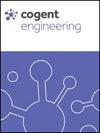Trends and determinants of domestic private investment in Ethiopia: Time series analysis
IF 2.5
Q2 ENGINEERING, MULTIDISCIPLINARY
引用次数: 0
Abstract
Abstract The Ethiopian Investment Commission was established to formulate suitable investment policy with good investment climate that enables investors to operate in a more macroeconomic friendly environment. Despite all efforts, domestic private investment in Ethiopia is still in its early stages. Therefore, this study aimed to investigate the trends and determinants of domestic private investment in Ethiopia using a time series data over the period 1992–2022. To meet its goal, the study employed an Autoregressive Distributed Lag (ARDL) bounds testing approach through E-views version 12. The findings show that domestic private investment was negatively and significantly affected by the inflation rate, public investment, and real effective exchange rate over a period of both the short- and long-run. While domestic credit to the private sector, foreign direct investment, real GDP and trade openness were found to have positive and significant effect on domestic private investment in long run. Unemployment rate was found to have positive and significant effect in short run but insignificant in long run. Annual interest rate was found negative significant effect in short run but insignificant in long run. While total government expenditure was insignificant in both short and long run. Inflation has a negative relation with domestic private investment in both short and long run, therefore the study suggested that policymakers should recognize the cause for fluctuations in inflation and keep in a stable manner.埃塞俄比亚国内私人投资的趋势和决定因素:时间序列分析
摘要 埃塞俄比亚投资委员会的成立是为了制定适当的投资政策,营造良好的投资环境,使 投资者能够在宏观经济更加友好的环境中开展业务。尽管做出了种种努力,埃塞俄比亚的国内私人投资仍处于早期阶段。因此,本研究旨在利用 1992-2022 年期间的时间序列数据,调查埃塞俄比亚国内私人投资的趋势和决定因素。为实现目标,本研究通过 E-views 第 12 版采用了自回归分布滞后(ARDL)边界检验方法。研究结果表明,无论是短期还是长期,国内私人投资都受到通货膨胀率、公共投资和实际有效汇率的显著负面影响。而从长期来看,国内对私营部门的信贷、外国直接投资、实际国内生产总值和贸易开放度对国内私人投资有积极和显著的影响。研究发现,失业率在短期内对国内私人投资有正向显著影响,但在长期内并不显著。年利率在短期内具有负向显著影响,但在长期内并不显著。政府总支出在短期和长期均不显著。无论从短期还是长期来看,通货膨胀与国内私人投资都呈负相关,因此研究建议政策制定者应认识到通货膨胀波动的原因,并保持稳定。
本文章由计算机程序翻译,如有差异,请以英文原文为准。
求助全文
约1分钟内获得全文
求助全文
来源期刊

Cogent Engineering
ENGINEERING, MULTIDISCIPLINARY-
CiteScore
4.00
自引率
5.30%
发文量
213
审稿时长
13 weeks
期刊介绍:
One of the largest, multidisciplinary open access engineering journals of peer-reviewed research, Cogent Engineering, part of the Taylor & Francis Group, covers all areas of engineering and technology, from chemical engineering to computer science, and mechanical to materials engineering. Cogent Engineering encourages interdisciplinary research and also accepts negative results, software article, replication studies and reviews.
 求助内容:
求助内容: 应助结果提醒方式:
应助结果提醒方式:


